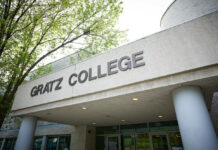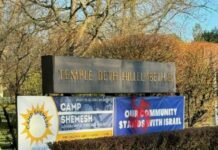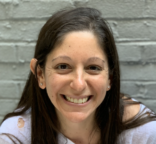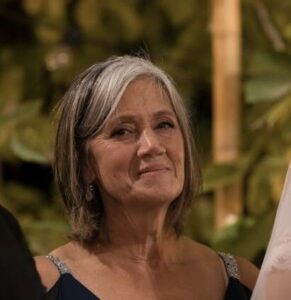
Lisa Richman taught at the Perelman Jewish Day School from 1976-2018. During that time, she also served as education director at Camp Ramah in the Poconos.
But since 2019, Richman has focused on a different type of education. She still teaches young people. Except now, she does it with firsthand sources: older Jews.
Throughout the year at her synagogue, Temple Beth Hillel-Beth El in Wynnewood, she brings together older Jews and adolescents. Richman thinks it’s valuable for them to talk to each other, but especially for the kids to talk to the seniors.
Now, a microgrant from the Pardes Institute of Jewish Studies, an educational organization based in Jerusalem, will help her continue this program as “Better Together University,” a forum for the study and discussion of Jewish texts. Temple Beth Hillel-Beth El also contributes funding.
“These are ways for the younger Jews to learn,” Richman said. “It also gives the adolescents an opportunity to speak with adults in a more personal way. It’s not your parents.”
In 2018, both of Richman’s parents died. But before they did, they lived in a senior home because Richman’s mother had Alzheimer’s disease. Every Wednesday at 3 p.m., her father would gather residents of the memory care unit and senior home to sing together.
“Knowing the joy my father got from singing,” she said. “I needed to put something like that together.”
Richman got permission to do it “within my own synagogue,” she said. In September 2019, she went back to Gratz College to finish her dissertation on intergenerational programming.
With a large grant from a philanthropic organization and funding from her synagogue, Richman developed the “Better Together” program.
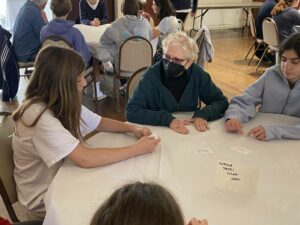
During the first year, Richman found various ways to connect students with older Jews, Jewish organizations and Jewish history. She took them to a senior home, the Jewish Relief Agency and the Weitzman National Museum of American Jewish History.
But as time went on, she wanted to create a program with more structure.
“There was learning before, but it wasn’t so formal,” Richman said. “There was always some kind of learning, activity related, and singing and eating.”
Now, an educator comes in, makes a presentation and the students, the adolescents and the seniors, discuss the text together. Discussion questions are provided. Then the instructor “pulls them back together and does a debrief,” Richman said.
It gives both groups a chance to talk.
“A lot of older people feel isolated. It really bothers me. And they have stories to tell,” Richman said. “The kids don’t know about a lot of these things. I got up at the museum and talked about my experience going to the Soviet Union. The kids had no idea. What do you mean you went to the Soviet Union? What do you mean there were Jews who were stuck there and couldn’t be connected to their families?”
And senior citizens “gain a lot of knowledge from the kids” as well, she said.
“If they don’t know how to do something on their phones or computers, you automatically go to the younger person,” Richman added. “It’s building community.”
The grandchildren of the seniors in the program know these stories. But the kids in “Better Together” do not. That way, the stories go on, according to Richman.
“The stories that the older adults have to tell are going to be lost otherwise,” Richman said.
There are about 35 kids and 15-20 seniors in the program. Richman wants to continue it beyond this grant.
“In our fifth year, Better Together University is a great added component. We’ve been able to recruit more empty nesters because of it,” she said. “I took this job because it’s my synagogue. I never would have left Perelman except for my synagogue. I’d do it as a volunteer.”



